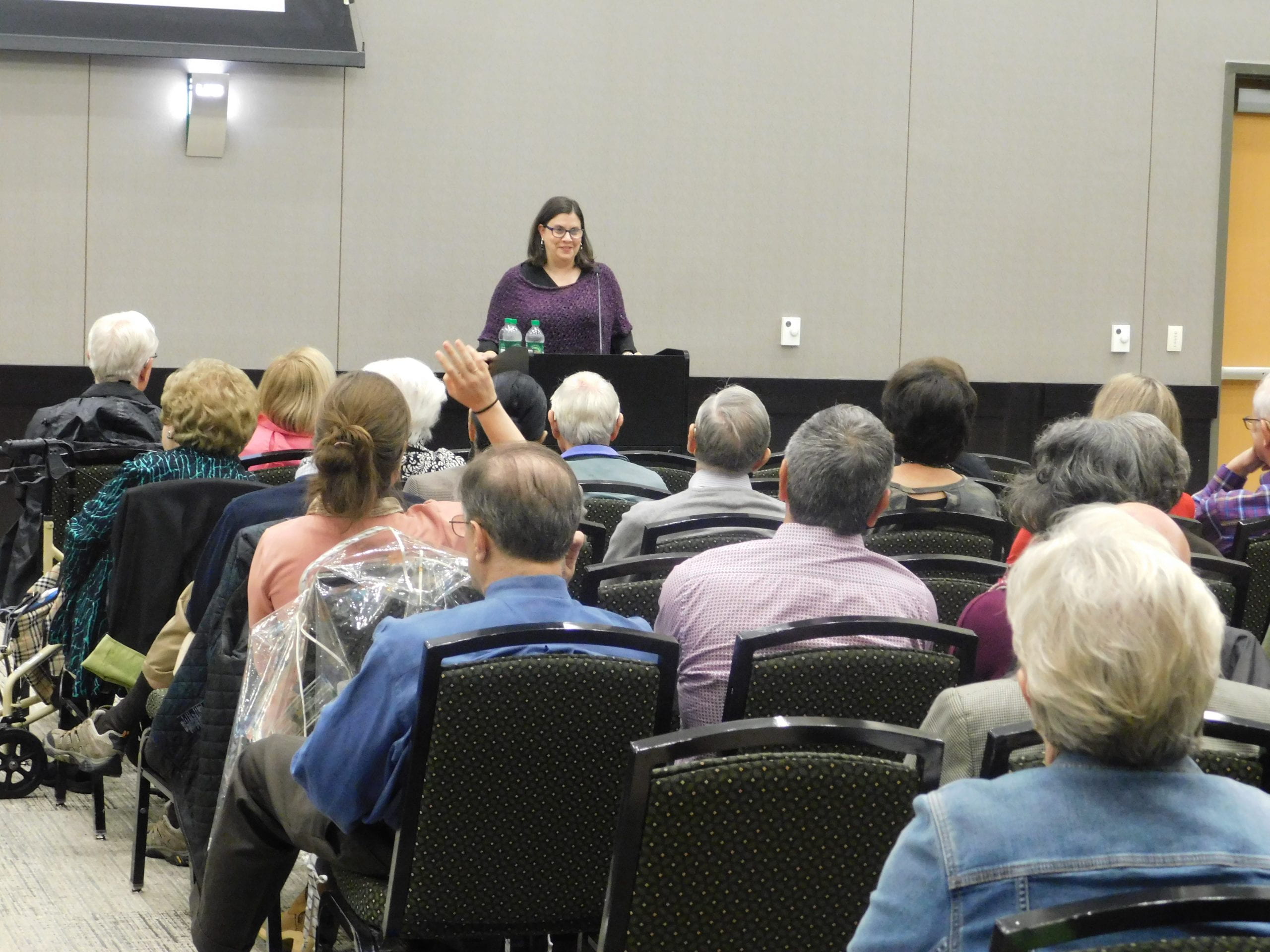
On November 7, the Institute for Human Rights hosted Alexandra Zapruder, author and member of the founding staff of the United States Holocaust Memorial Museum in Washington D.C. She discussed her first book, Salvaged Pages: Young Writers’ Diaries of the Holocaust, and answered questions about her work. Throughout her lecture, Zapruder highlighted the variety of insights we can gain from the diaries of teenagers/young adults who experienced the Holocaust.
While Anne Frank is certainly the most well-known authors of such a diary, there is much to be learned from the other young authors whose diaries have been found in the last few decades. Zapruder described these diaries as being both historical and literary fragments, giving us a window into the past and helping us better understand human experiences from different perspectives of the time.
Zapruder described having to grapple with the legacy of Anne Frank’s diary and how it shapes the reception of the other diaries that are found. For example, people often associated Frank’s writing with a hopeful view of humanity. It is often discussed with language that relates to redemption and optimism that is rarely used when discussing the atrocities that occurred during the Holocaust on their own. This does not, however, reflect every young writer’s writing during this time. Zapruder noted that, no matter how great a writer is, it does not make sense to expect their writing to represent all perspectives in a common experience when people are so different. Reading other diaries from the Holocaust requires setting aside the preconceived notions we have from learning about Anne Frank’s diary in the past.
One young writer that Zapruder spoke about during her lecture was Klaus Langer, a child of a fairly well-to-do family in Essen, Germany. She read an entry from his diary that was written on November 11, 1938, the day after Kristallnacht. His diary entries were generally records of what happened in his day-to-day life as he and his family made efforts to leave Nazi Germany, and this entry was no different. Langer described walking down the street through the wreckage after everything that happened, walking on glass splinters. Though that day in history had not been named “Kristallnacht” yet, the significance of the shatter glass is clear in his writing. When reading this entry, Zapruder recognized that, when you are writing in a diary about the day-to-day, you capture nuances you might miss later, things that would be easy to forget in future recollections.
Another writer that Zapruder discussed was Elsa Binder, a 21-year-old girl who lived with her parents in Poland. Zapruder described Binder as someone who could be sarcastic and had an edge. In Binder’s diary, Zapruder found a strong example of an unexpected common theme among the diaries: the passage of time. There were certainly themes that had been expected, such as desperation, hope, hunger, and displacement, but the passage of time was addressed to a surprising degree in nearly all of the diaries. Zapruder found many entries detailing life before the war, the traumatic break from normal life, and waiting liberation as time passed. Birthdays and holidays were noted regularly, even when the world was in chaos.
Perhaps the most striking thing that Zapruder addressed during her lecture was the way that these works resonate with young people. Though the experiences of most American teenagers are far different from those who lived during the Holocaust, many of the things that young people experience today connect to the themes found in the diary, from hope for the future to fear to desperation. Children face many human rights issues, such as school shootings, gun violence, and violence against people of color and the LGBTQ+ community. Like many of the young writers that Zapruder discussed during her lecture, many of the children of today are desperate for a better future. It is vital that adults step up and become better advocates for that future and for the human rights of children and adolescents.
If you want to learn more about children’s rights and related issues in the United States you can checkout Children’s Rights, The Coalition to Stop Gun Violence, and the Human Rights Campaign.
